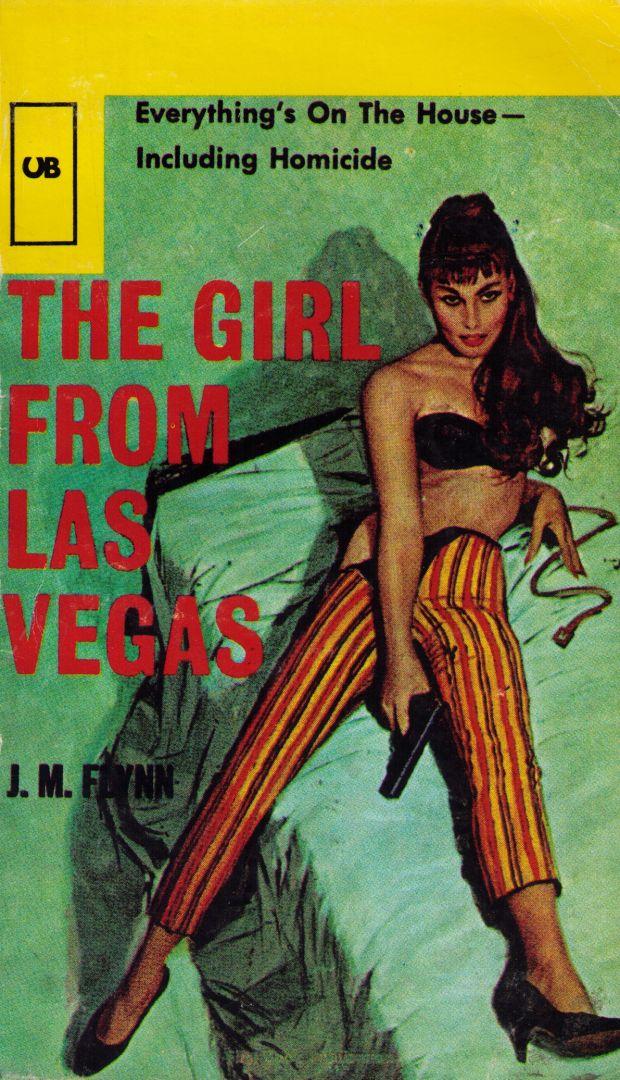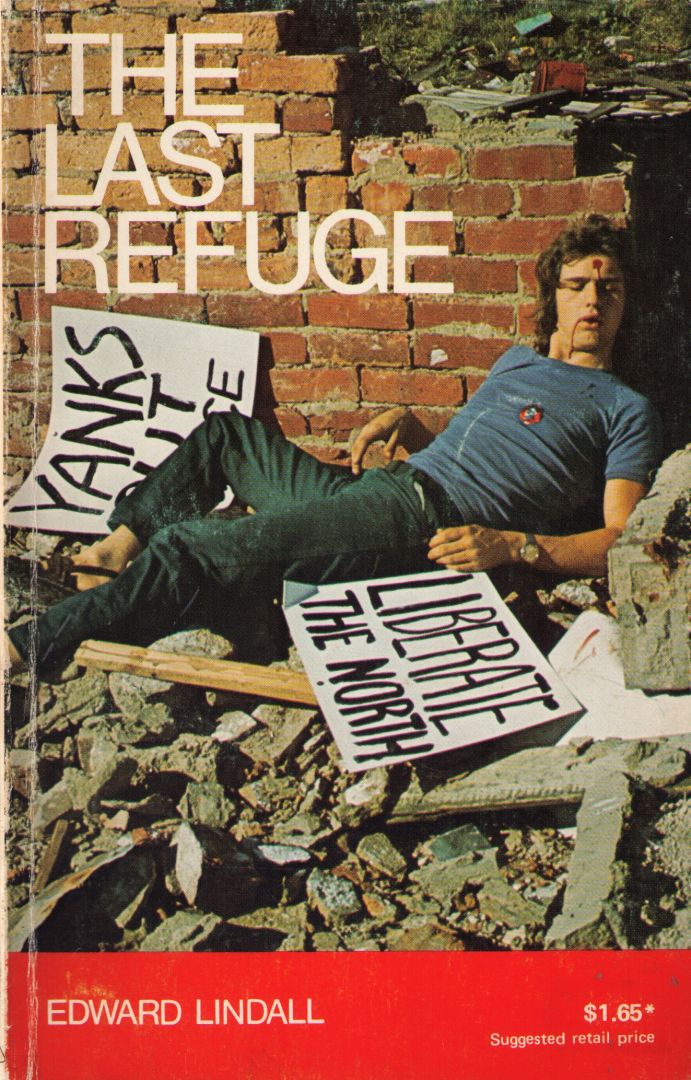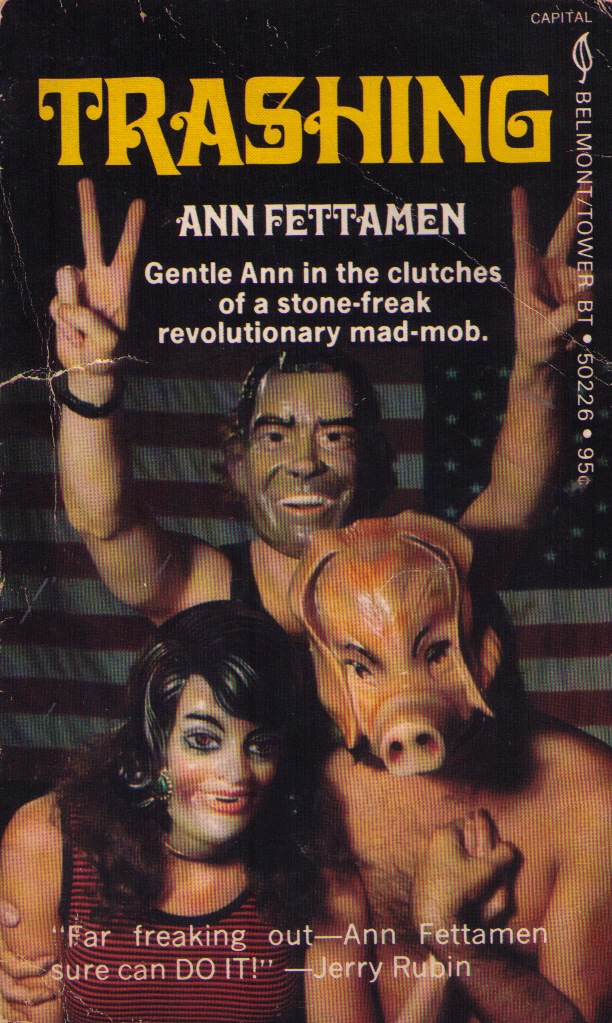Search
-
Recent Posts
- Dishing up Pulp Curry in a new way: why I am starting a Substack newsletter
- Book reviews: Deadly dames, midcentury Brit pulp and 1970s science fiction
- Mackenna’s Gold (1969): Gold, Ghosts and Frontier Violence
- Orphan Road book launch
- Orphan Road now available
- Pre-orders open for my new novel, Orphan Road
- Cover reveal: Orphan Road, my follow up to Gunshine State
- Breakfast in the Ruins podcast: New English Library Bikermania
- Why 1973 was the year Sidney Lumet took on police corruption
- Men’s Adventure Quarterly: Gang Girls issue
Categories
- 1960s American crime films
- 1970s American crime films
- 1980s American crime films
- 1990s American crime films
- Adrian McKinty
- Albert Dekker
- Andre De Toth
- Angela Savage
- Angie Dickinson
- Anthony Zerbe
- Asian noir
- Australian crime fiction
- Australian crime film
- Australian noir
- Australian popular culture
- Australian pulp fiction
- Australian television history
- Ava Gardner
- Beat culture
- Belmont Tower Books
- Ben Wheatley
- Billie Whitelaw
- Black pulp fiction
- Blaxsploitation
- Book cover design
- Book Reviews
- British crime cinema
- British pulp fiction
- Bryan Brown
- Burt Lancaster
- Carter Brown
- Charles Durning
- Charles Willeford
- Chester Himes
- Christopher G Moore
- Christopher Lee
- Cinema culture
- Claude Atkins
- Coronet Books
- Crawford Productions
- Crime Factory
- Crime Factory Publications
- Crime fiction
- Crime fiction and film from Africa
- Crime fiction and film from Cambodia
- Crime fiction and film from China
- Crime fiction and film from India
- Crime fiction and film from Indonesia
- Crime fiction and film from Japan
- Crime fiction and film from Laos
- Crime fiction and film from Latin and Central America
- Crime fiction and film from Malaysia
- Crime fiction and film from New Zealand
- Crime fiction and film from Scandinavia
- Crime fiction and film from Singapore
- Crime fiction and film from South Korea
- Crime fiction and film from Thailand
- Crime fiction and film from the Philippines
- Crime Fiction and film set in Vietnam
- Crime film
- Dangerous Visions and New Worlds Radical Science Fiction 1950 to 1985
- David Goodis
- David Peace
- David Whish-Wilson
- Derek Raymond
- Diana Dors
- Dirk Bogarde
- Don Siegel
- Don Winslow
- Donald Westlake aka Richard Stark
- Dystopian cinema
- Ernest Borgnine
- Eurocrime
- Fawcett Gold Medal Books
- Femme fatale
- Fernando Di Leo
- Filipino genre films
- Film Noir
- Forgotten Melbourne
- French cinema
- French crime fiction
- Garry Disher
- Gene Hackman
- George V Higgins
- Georges Simenon
- Ghost Money
- Giallo cinema
- Gil Brewer
- Girl Gangs, Biker Boys and Real Cool Cats: Pulp Fiction & Youth Culture, 1950-1980
- Gloria Grahame
- Gold Star Publications
- Gregory Peck
- Gunshine State
- Heist films
- Horror
- Horwitz Publications
- Humphrey Bogart
- Ian Fleming
- Interviews
- Ira Levin
- James Caan
- James Crumley
- James Ellroy
- James Hadley Chase
- James Woods
- Jim Brown
- Jim Thompson
- Joel Edgerton
- John Frankenheimer
- Joseph Losey
- Karen Black
- Kerry Greenwood
- Kinji Fukasaku
- Larry Kent
- Laura Elizabeth Woolett
- Lee Marvin
- Leigh Redhead
- Lindy Cameron
- M Emmet Walsh
- Mad Max
- Mafia
- Malla Nunn
- Martin Limon
- Megan Abbott
- Melbourne International Film Festival
- Melbourne Writers Festival
- Men's Adventure Magazines
- Michael Caine
- Michael Fassbender
- Mickey Spillane
- Monarch Books
- Ned Kelly Awards
- Neo Noir
- New English Library
- Newton Thornburg
- Noir Con
- Noir fiction
- Non-crime reviews
- Oren Moverman
- Orphan Road
- Ozsploitation
- Pan Books
- Parker
- Paul Newman
- Peter Boyle
- Peter Corris
- Peter Strickland
- Peter Yates
- Poliziotteschi
- Pulp fiction
- Pulp fiction in the 70s and 80s
- Pulp fiction set in Asia
- Pulp Friday
- Pulp paperback cover art
- Qui Xiaolong
- Raymond Chandler
- Richard Burton
- Richard Conte
- Robert Aldrich
- Robert Mitchum
- Robert Ryan
- Robert Stone
- Rock Hudson
- Roger Smith
- Rollerball
- Rosaleen Norton
- Roy Scheider
- Rural noir
- Sam Levene
- Sam Peckinpah
- Samuel Fuller
- Science fiction and fantasy
- Scripts Publications
- Sidney Lumet
- Sidney Poitier
- Simon Harvester
- Snowtown
- Snubnose Press
- Spies
- Stanley Baker
- Sterling Hayden
- Steve McQueen
- Sticking it the the Man Revolution and Counter Culture in Pulp and Popular Fiction 1950 1980
- Stuart Rosenberg
- Tandem Books
- Tart noir
- Tartan Noir
- Ted Lewis
- Toni Johnson Woods
- True crime
- Vicki Hendricks
- Victor Mature
- Vintage mug shots
- Vintage pulp paperback covers
- Wallace Stroby
- War film
- Westerns
- William Friedkin
- Woody Strode
- Yakuza films
- Yaphet Kotto
Nothing but noir
Recommended reading
The lurid world of pulp
- 20th century Danny Boy
- American Pulps
- Bear Alley
- Bloody, Spicy, Books
- Comics Down Under
- Everything second hand
- Existential Ennui
- Greenleaf Classic Books
- Irv O. Neil's Erotica is My Trade
- Killer Covers
- Lost Classics of Teen Lit 1939-1989
- Luminist Archives
- Men's Pulp Mags
- Mporcius Fiction Log
- Murder, Mayhem and Long Dogs
- Neglected Books
- Nocturnal Revelries
- Paperback Warrior
- Paperbacks of the Gods
- Pop Sensation
- Pulp artists
- Pulp Covers
- Pulp Crazy
- Pulp Flakes
- Pulp International
- Pulp Magazines Project
- Pulp Serenade
- Realms of the Night
- Romance Fiction Has a History
- Rough Edges
- Sin Street Sleaze
- Spy Guys and Gals
- The department of Afro American Research Arts & Culture
- The Dusty Bookcase
- The Haunted World of Richard Sala
- The Moon Lens
- The Nick Carter & Carter Brown Blog
- The Pulp & Paperback Fiction Reader
- Too Much Horror Fiction
- True Pulp Fiction
- Vault of Horror
- Vintage Nurse Romance Novels
- Vintage Romance Novels
- Welcome to the Pan Paperback
- Yellow and Creased
Support This Site
If you like what I do please support me on Ko-fi
Category Archives: Vintage pulp paperback covers
Pulp Friday: The Girl From Las Vegas
 “Everything’s on the house – including homicide.”
“Everything’s on the house – including homicide.”
I thought today’s pulp Friday would be a relatively straight forward affair.
The Girl From Las Vegas, by J.M.Flynn, is one of the many pulp paperbacks from the US and UK, reprinted in Australia in the early seventies by small, anonymous operations.
In this case it was an outfit called Universal Paperbacks. The book has no republication date and the only information about the publisher is that it was printed by Griffon Press, 262 Marion Road, Netley, South Australia.
I selected it because I like the cover and it has a great tag line: “Everything’s on the house – including homicide”.
The story concerns Matt Tara, a man who goes to the closing night party of his popular local saloon, only to wake up the next morning with a skull buster of a hung over and the realisation he got so drunk during the festivities, he actually bought the establishment. Tara’s troubles mount when he discovers the bar is worth a great deal of money to the some criminal inclined members of the local community.
Ace Paperbacks originally published The Girl From Las Vegas in 1961 (cover below). I often draw a blank in my efforts to track down more in-depth information about these knock off pulps.… Read more
Pulp Friday: The Last Refuge
 Today’s Pulp Friday is a little known but interesting book, The Last Refuge by Edward Lindall, published in 1972.
Today’s Pulp Friday is a little known but interesting book, The Last Refuge by Edward Lindall, published in 1972.
It’s interesting for two reasons.
First, it was an attempt to set a spy thriller amid the radical student politics taking place in Australia in the early seventies.
The second reason is the publisher, a little known Melbourne-based pulp publishing outfit called Gold Star Publications.
The main character of The Last Refuge is Jay Landon, an Australian Security and Intelligence Organisation agent, assigned the mission of infiltrating and destabalising a group of Maoists, led by Peking agent, Clyde Mansell. The Maoists have left their inner city terraces for the wide expanse of the Australia’s north to wage guerrilla war against US multinationals stripping the country of its mineral wealth.
Lindall’s real name was Ernest Edward Smith, an Adelaide based journalist and writer who penned 13 books, mainly crime and thrillers, but also some science fiction. He died in 1979. The Last Refuge, the only of his books released by Gold Star Publications, taps into the very real politics of what was the most physically and politically aggressive of the radical student groups operating on Australian campuses in the early seventies.
Here’s the back cover blurb:
“There’s always two sides to any story.… Read more
Pulp Friday: Kings Cross Black Magic
 Today’s Pulp Friday is a great example of exploitative pulp dressed up as quasi-serious sociological inquiry, Kings Cross Black Magic by the wonderfully named, Attila Zohar.
Today’s Pulp Friday is a great example of exploitative pulp dressed up as quasi-serious sociological inquiry, Kings Cross Black Magic by the wonderfully named, Attila Zohar.
It’s also one of the more unusual pieces of pulp fiction produced in the sixties and seventies in response to the real and imagined goings on in Sydney’s notorious vice strip, Kings Cross.
I just love the cover of this book. The minimal furnishings, the title font, the female model, who I presume is supposed to look ‘Satanic’ but comes across more as a sort of sullen drag queen. It speaks of things that just shouldn’t be talked about in polite company, which, in turn, only makes me more curious.
Kings Cross Black Magic was released by Horwitz publications in 1965. According to the University of Ortago’s wonderful pulp fiction website, Attila Zohar was a pseudonym for James Holledge. Holledge was a former clerk who became part of the stable of in-house writers brought together by Horwitz in the early sixties. He wrote approximately 45 books between 1961 and 1970, most of them salacious journalistic tracks parading as sociological expose.
His titles included Australia’s Wicked Women (1963), Crimes Which Shocked Australia (1963) and Women Who Sell Sex (1964) and What Makes a Call Girl (1964).… Read more
Pulp Friday: Trashing
 “Gentle Ann in the clutches of a stone-freak revolutionary mad mob.”
“Gentle Ann in the clutches of a stone-freak revolutionary mad mob.”
A lot of the books we consider radical or counter cultural pulp fiction where written by people who, in reality, had nothing to with the actual scene but just wanted to cash in on it.
Today’s Pulp Friday book, Trashing, was written by someone intimately involved in the sixties counter culture. Released by Belmont Tower Books in 1972, the author, Ann Fettamen, was a pseudonym for Anita Hoffman, wife of Abbie Hoffman. In true Yippie style, Hoffman puffed the book (“Ann Fettamen is the Nancy Drew of the revolution… Trashing makes Harold Robbins read like Homer”). So did fellow Yippie Jerry Rubin.
The book is a semi-autobilographical tale of a young woman who gets involved in the counter culture after meeting a charismatic revolutionary, and engages in all manner of Yippie activities.
The back cover blurb is as follows:
“The perils of Ann.
Orgies, drugs, stealing and revolutionary mad-making are part of the underground’s daily life. When Ann, a nice girl from a good home, falls in love with a subterranean guru she meets the hippies head-on. After an LSD wedding in Central Park, Ann settles for the humdrum existence of pot-smoking, group sex and biker rumbles, credit card stealing and takeover of the New York Stock Exchange.… Read more
Pulp Friday: more adventures behind the bamboo screen
One of the most successful pulp fiction related posts to date on this site was a selection of Asian themed pulp fiction paperback covers I put up in 2011, Behind the bamboo screen: Asian pulp covers of the sixties and seventies.
For a while now I’ve been planning a follow up and here it is.
As was the case in the original post, the covers below portray the anti-communist hysteria created by the rise of the so-called ‘red menace’ as well the fate of innocent (and not so innocent) Westerners thrown into chaos and intrigue of the ‘Far east’, a place of intrigue, “notorious pleasure palaces” and “forbidden desire”.
Hong Kong was a popular setting of Asian themed pulp fiction, as evidenced by titles such as A Coffin From Hong Kong (“A seemingly innocent telephone call led him to the murder of a Chinese call-girl who had talked to much and into the teeming, sordid nightlife of colourful Hong Kong”).
Other locales portrayed below include, Korea (The Turncoat), China (Shanghai Incident – “I had two callers my first night in Shanghai – death and a honey blonde”), the “South Seas” (November Reef), India (Men and Angels), Burma (The House of Bamboo – “In a Burmese girl’s warm, seductive beauty he found escape from the flames of forbidden desire”), and Thailand (Port Orient).… Read more
Posted in Crime fiction and film from Cambodia, Fawcett Gold Medal Books, Pulp fiction, Pulp fiction in the 70s and 80s, Pulp fiction set in Asia, Pulp paperback cover art, Vintage pulp paperback covers
Tagged Asian themed pulp fiction, Dan Cushman, Fu Manchu, James Eastwood, James Hadley Chase, Lawrence Block, Sax Rohmer




















